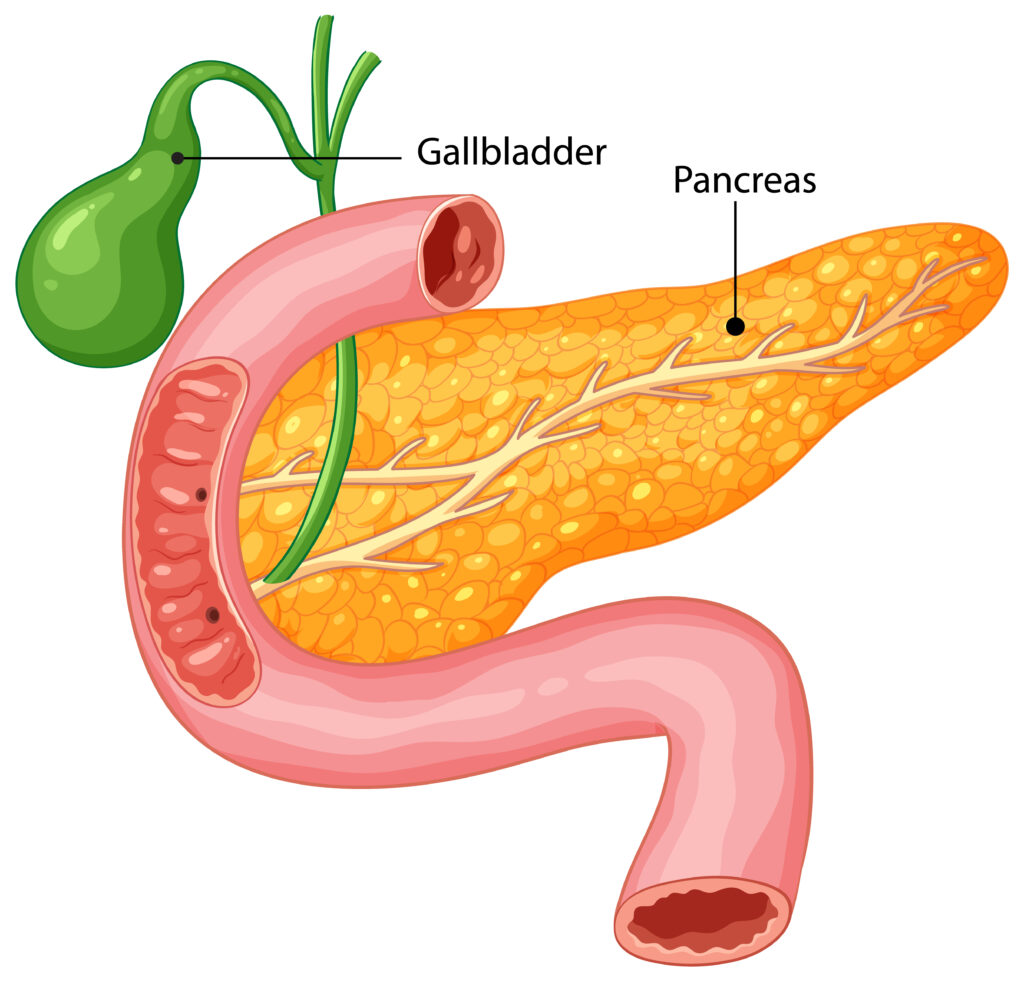The throat is one of the most sensitive parts of the human body, responsible for vital functions such as swallowing, breathing and speaking. When throat problems arise, even simple tasks like eating or talking can become uncomfortable. From infections to inflammation and post-surgical discomfort, throat and neck problems can occur for various reasons.
Understanding the underlying cause is key to finding the right treatment. In this guide, we will explore the most common throat problems, their symptoms, causes and effective treatment options including medical and natural remedies. Whether you are dealing with a sore throat, throat infection or complications like throat problems after ACDF surgery, this post covers it all.
-
Understanding Throat Problems
Throat problems refer to any discomfort, pain, or inflammation affecting the throat (pharynx), larynx (voice box), or surrounding neck area. These can range from mild irritation to serious medical conditions requiring professional care.
Common Symptoms Include:
- Persistent throat pain or irritation
- Difficulty swallowing or speaking
- A feeling of a lump or tightness in the throat
- Swelling or redness in the throat
- Voice hoarseness
- Cough or mucus buildup
Throat issues can occur on their own or may be linked with broader throat and neck problems such as lymph node inflammation, thyroid issues or post-surgical swelling.
-
Common Causes of Throat Problems
A variety of factors can trigger throat discomfort. Here are the most frequent causes:
- Viral and Bacterial Infections
The majority of sore throats are caused by viral infections such as the common cold, flu or COVID-19.
Bacterial infections like Streptococcal pharyngitis (strep throat) are less common but often more severe. In such cases, doctors may prescribe antibiotics for throat infection to clear the bacteria and prevent complications.
- Allergies and Environmental Factors
Allergies to dust, pollen or mold can cause throat irritation and postnasal drip, leading to constant coughing or a sore throat. Similarly, dry indoor air, smoke or pollution can trigger throat and neck problems.
- Acid Reflux (GERD)
Gastroesophageal reflux disease occurs when stomach acid flows back into the esophagus, irritating the throat lining. This can cause burning, dryness and a persistent sore throat, often worse in the morning.
- Thyroid Problems
A sore throat with thyroid problems can occur when the thyroid gland (located in the neck) becomes inflamed due to conditions like thyroiditis or goiter. This may cause neck pain, hoarseness, and a sensation of pressure or tightness in the throat.
- Post-Surgical Throat Issues (ACDF Surgery)
Throat problems after ACDF surgery (Anterior Cervical Discectomy and Fusion) are relatively common. Patients often experience throat swelling, hoarseness, and difficulty swallowing for several days or weeks after surgery. These symptoms usually improve with time but should be monitored closely by a healthcare provider.
- Lifestyle Factors
Excessive shouting, smoking, dehydration, and exposure to irritants can lead to chronic throat irritation and inflammation.
-
Common Throat Problems Explained
- Sore Throat (Pharyngitis)
A sore throat is one of the most common throat complaints. It can be caused by infections, allergies or even overuse of the voice.
Symptoms: Pain when swallowing, redness, and scratchiness.
Treatment: Rest, warm fluids, saltwater gargles and throat lozenges. For bacterial causes, antibiotics for throat infection may be necessary.
- Tonsillitis
Tonsillitis occurs when the tonsils at the back of the throat become inflamed due to infection.
Symptoms: Fever, swollen tonsils, white patches and difficulty swallowing.
Treatment: Mild cases respond to home care, bacterial tonsillitis may require antibiotics. In chronic cases, tonsil removal (tonsillectomy) may be advised.
- Laryngitis
Laryngitis is inflammation of the larynx or voice box, often caused by infection or vocal strain.
Symptoms: Hoarseness, voice loss, sore throat and dry cough.
Treatment: Voice rest, hydration, steam inhalation and avoiding irritants.
- Strep Throat
Strep throat is a bacterial infection caused by Group A Streptococcus.
Symptoms: Severe sore throat, fever, swollen lymph nodes, and white patches in the throat.
Treatment: Confirmed by a throat swab test; antibiotics for throat infection are typically prescribed to prevent complications.
- Postnasal Drip
This occurs when mucus drips down the back of the throat, causing irritation and coughing.
Symptoms: Throat clearing, coughing, and a tickling sensation.
Treatment: Managing allergies, using saline sprays and staying hydrated.
- Throat Problems Related to Thyroid
Inflammation or enlargement of the thyroid gland can lead to sore throat with thyroid problems.
Symptoms: Swelling in the neck, hoarseness, fatigue or difficulty swallowing.
Treatment: Depends on the cause may include medication, hormone therapy or surgical intervention.
- Throat Issues After Surgery
After ACDF surgery, patients may experience throat problems due to surgical manipulation of neck structures.
Symptoms: Difficulty swallowing, sore throat, or neck tightness.
Treatment: Rest, soft foods, anti-inflammatory medications and patience symptoms usually resolve within weeks.
- Throat Cancer
Although rare, persistent throat pain, voice changes, or difficulty swallowing should not be ignored.
Symptoms: Lump in the neck, hoarseness, unexplained weight loss or bleeding.
Treatment: Early diagnosis is crucial; treatment options include surgery, radiation or chemotherapy.
-
Effective Solutions for Throat Problems
- Home Remedies
- Saltwater Gargles – Reduces swelling and kills bacteria.
- Honey and Warm Water – Soothes irritation and inflammation.
- Steam Inhalation – Keeps the throat moist and clears congestion.
- Hydration – Drinking plenty of fluids prevents dryness and promotes healing.
- Rest – Helps the immune system recover quickly.
- Medical Treatments
- Antibiotics for Throat Infection – Used only for bacterial cases like strep throat or tonsillitis. Overuse should be avoided to prevent antibiotic resistance.
- Anti-inflammatory Medicines – Relieve pain and swelling.
- Throat Sprays & Lozenges – Provide temporary relief from irritation.
- Corticosteroids – In severe inflammation or post-surgery cases, doctors may prescribe mild steroids.
- Surgery – In chronic tonsillitis, thyroid nodules or post-ACDF complications, surgical procedures may be necessary.
- Lifestyle Modifications
- Avoid smoking and second-hand smoke.
- Stay hydrated throughout the day.
- Limit caffeine and alcohol intake.
- Use a humidifier in dry environments.
- Practice good oral hygiene.
- Avoid excessive shouting or straining your voice.
-
Prevention Tips for Healthy Throat
- Wash hands frequently to prevent infections.
- Avoid close contact with people who have a sore throat or flu.
- Boost immunity with a balanced diet rich in vitamin C and zinc.
- Keep your throat moist by drinking water regularly.
- Avoid exposure to irritants such as smoke, dust and pollution.
-
When to See a Doctor
Consult a healthcare professional if
- Throat pain lasts longer than 10 days.
- There is difficulty swallowing or breathing.
- You experience neck swelling or persistent hoarseness.
- You notice white patches, bleeding or severe discomfort.
Prompt medical care can rule out serious conditions like infections or thyroid-related throat problems.
Frequently Asked Questions:
- What are the most common throat problems?
Sore throat, tonsillitis, laryngitis and strep throat are among the most common. They can result from viral, bacterial or environmental factors. - What causes a sore throat with thyroid problems?
Inflammation of the thyroid gland or an enlarged thyroid (goiter) can cause throat pain, pressure or difficulty swallowing. - Are antibiotics necessary for every throat infection?
No. Antibiotics are only prescribed for bacterial infections such as strep throat. Viral infections do not respond to antibiotics. - How long does it take to recover from a throat infection?
Viral infections typically improve within 5 to 7 days, while bacterial infections may take 7 to 10 days with treatment. - Can throat problems occur after ACDF surgery?
Yes. Mild throat pain and swallowing difficulty are common after ACDF surgery but usually resolve within a few weeks. - What home remedies are effective for throat pain?
Warm saltwater gargles, honey with warm water, steam inhalation and staying hydrated are effective home remedies. - Can thyroid disorders cause neck or throat swelling?
Yes, thyroid enlargement or inflammation can cause visible neck swelling and throat discomfort. - When should I see a doctor for throat pain?
If the pain persists for more than a week, is severe or accompanied by fever, swelling or hoarseness, seek medical attention. - What are the best preventive measures for throat problems?
Maintain good hygiene, avoid smoking, stay hydrated and protect yourself from allergens and infections. - How can I strengthen my throat naturally?
Stay hydrated, practice good vocal habits, eat a nutrient-rich diet and avoid irritants like smoke or pollution.
Conclusion:
Throat problems are incredibly common and often result from infections, allergies or lifestyle factors. While most cases are mild and resolve on their own, persistent or severe symptoms should never be ignored. Conditions like sore throat with thyroid problems or throat problems after ACDF surgery may need medical supervision.
Maintaining good hygiene, staying hydrated and seeking timely treatment such as antibiotics for throat infection when necessary are key to keeping your throat healthy. By combining preventive care with the right medical support, you can ensure long-term relief and optimal throat health.



